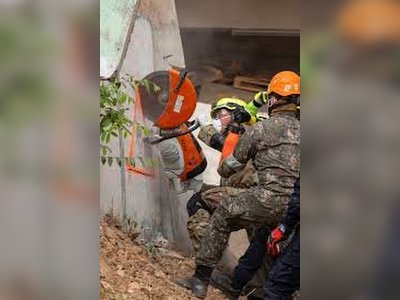Afghanistan's Health Care Crisis: A Regression in Women's Rights
The Taliban's ban on female nursing education deepens health challenges and tests global diplomatic resolve.
In a move that has ignited global condemnation, the Taliban has issued a ban on Afghan women training as nurses and midwives, intensifying the country's healthcare crisis and threatening the delicate fabric of social progress.
This decision strikes at the heart of Afghan society, where women's contributions in healthcare are indispensably linked to community well-being and survival.
Long regarded as a lifeline, female healthcare practitioners in Afghanistan play a critical role in bridging cultural barriers.
In a society where many women are prohibited from visiting male doctors, the absence of female nurses and midwives represents more than just a gap in services.
It symbolizes a broader erosion of women's rights, echoing a departure from two decades of painstaking advancements.
Statistics paint a grim picture.
Afghanistan, with one of the highest maternal mortality rates globally, requires immediate attention and substantial infrastructure to address the existing healthcare deficits.
The country needs an estimated eighteen thousand additional skilled midwives—an aspiration now further out of reach.
This shortfall could exacerbate health inequities and fundamentally alter the trajectory of women's health outcomes.
Critics argue that the ban is a strategic maneuver by the Taliban to consolidate power at the cost of public welfare, prioritizing ideological purity over tangible needs.
Such actions resonate far beyond Afghanistan's borders, challenging global powers to reassess their engagement with the regime.
The international community faces a moral imperative: should diplomatic relations and aid be conditional on the recognition of fundamental human rights?
Prominent activists and organizations, including Human Rights Watch and Afghan advocacy groups, underscore the severe consequences: without trained female healthcare workers, Afghan women face insurmountable barriers to essential medical care, leading to dire, potentially fatal outcomes.
This development places Afghanistan's allies in a precarious position.
The international community's response could set a precedent in global human rights advocacy.
As the world continues to watch, voices like Malala Yousafzai remind us of the urgency in advocacy: "We realize the importance of our voices only when we are silenced." The situation demands collective action, a concerted effort to amplify the silenced voices and strive for equitable access to education and healthcare as intrinsic human rights.
In a challenging global context, this decision by the Taliban is not just a setback for women's rights in Afghanistan.
It is a clarion call for all who value progress, equality, and the unassailable right to knowledge and care, reminding us that silence is not an option in the face of adversity.
This decision strikes at the heart of Afghan society, where women's contributions in healthcare are indispensably linked to community well-being and survival.
Long regarded as a lifeline, female healthcare practitioners in Afghanistan play a critical role in bridging cultural barriers.
In a society where many women are prohibited from visiting male doctors, the absence of female nurses and midwives represents more than just a gap in services.
It symbolizes a broader erosion of women's rights, echoing a departure from two decades of painstaking advancements.
Statistics paint a grim picture.
Afghanistan, with one of the highest maternal mortality rates globally, requires immediate attention and substantial infrastructure to address the existing healthcare deficits.
The country needs an estimated eighteen thousand additional skilled midwives—an aspiration now further out of reach.
This shortfall could exacerbate health inequities and fundamentally alter the trajectory of women's health outcomes.
Critics argue that the ban is a strategic maneuver by the Taliban to consolidate power at the cost of public welfare, prioritizing ideological purity over tangible needs.
Such actions resonate far beyond Afghanistan's borders, challenging global powers to reassess their engagement with the regime.
The international community faces a moral imperative: should diplomatic relations and aid be conditional on the recognition of fundamental human rights?
Prominent activists and organizations, including Human Rights Watch and Afghan advocacy groups, underscore the severe consequences: without trained female healthcare workers, Afghan women face insurmountable barriers to essential medical care, leading to dire, potentially fatal outcomes.
This development places Afghanistan's allies in a precarious position.
The international community's response could set a precedent in global human rights advocacy.
As the world continues to watch, voices like Malala Yousafzai remind us of the urgency in advocacy: "We realize the importance of our voices only when we are silenced." The situation demands collective action, a concerted effort to amplify the silenced voices and strive for equitable access to education and healthcare as intrinsic human rights.
In a challenging global context, this decision by the Taliban is not just a setback for women's rights in Afghanistan.
It is a clarion call for all who value progress, equality, and the unassailable right to knowledge and care, reminding us that silence is not an option in the face of adversity.












